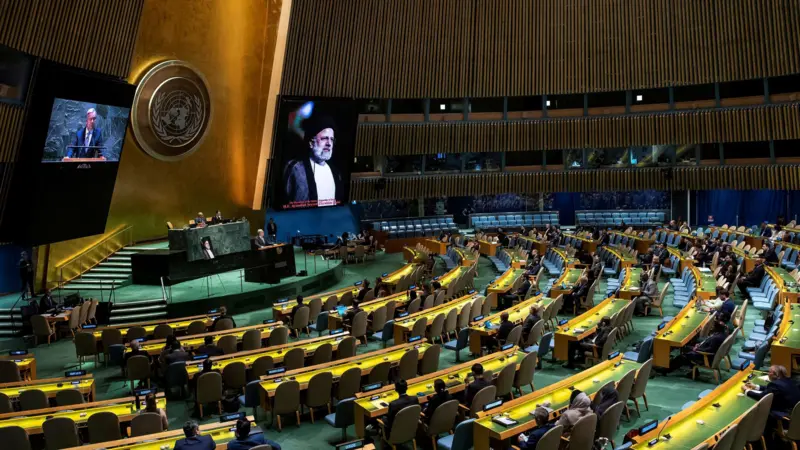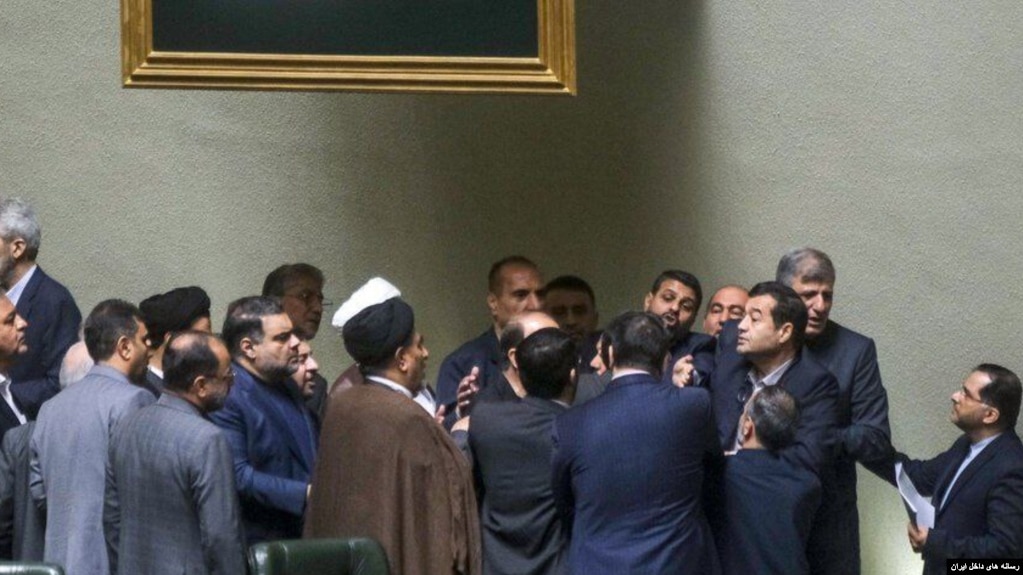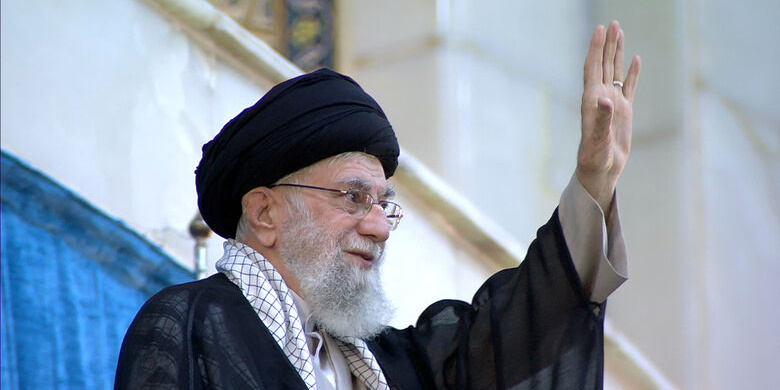
Iran Today and the Presidential Candidates
In an editorial for Arman Daily, Mohammad Fazeli discusses the critical need for Iran’s political landscape to address a series of pressing questions in light of the upcoming early elections. He argues that every candidate, political group and faction must provide clear and convincing answers to these questions to navigate Iran’s current challenges and future prospects effectively.
Fazeli emphasizes that historical events have precipitated early elections, and such occurrences are not uncommon. He insists that participation in the electoral process, whether through candidacy or even abstention, must be grounded in a contemporary Iranian theoretical framework. This theory should address crucial aspects of Iran’s sociopolitical landscape.
The editorial highlights the necessity for any modern Iranian theory to answer significant questions about the country’s current state. Firstly, it must examine the fundamental dimensions that have shaped contemporary Iran. Additionally, it should identify the enduring characteristics that have influenced Iran’s trajectory beyond the various regimes that have ruled the country, such as the Qajar, Pahlavi, and Islamic Republic eras.
Fazeli calls for a comparative analysis of the past two to three decades of governance to understand the similarities and differences and their impact on Iran today. He stresses the importance of identifying the unique characteristics of the current era under the Islamic Republic and evaluating the government’s capacity to implement and accept changes.
The editorial further explores the variables influencing governmental behavior towards political, economic, social, and cultural changes. It questions the ability of the government-society dynamic to initiate, sustain and accept the consequences of these changes. Moreover, it examines the current state of relations between societal elites and the general population, assessing the logic behind their interactions.
The position of the populace within the governance system is another critical area. The editorial probes how citizens’ demands are identified, represented, and addressed effectively. It also outlines strategies for political forces entering the election to mitigate adverse conditions and improve general welfare.
The editorial said that Iran is facing early elections due to a historical accident, highlighting the recurring nature of such events. Political groups and factions are nominating candidates, but every action, including non-participation, should be based on a contemporary Iranian theory. This theory should identify the important dimensions that have shaped Iran today, transcending the names and qualities of past governments like the Qajar, Pahlavi, and Islamic Republic eras.
The editorial argued that understanding the variables influencing government behavior towards political, economic, social, and cultural changes is crucial. It questioned the ability of the government-society dynamic to initiate, sustain, and accept these changes. Furthermore, it examined the state of relations between societal elites and the general population, and the logic behind their interactions.
Where in the World?
In an editorial for Hammihan Online, the writer critiques the peculiarities and irrational behaviors observed across Iran’s political landscape. These actions, often criticized by both officials and their supporters or detractors, are seen as unique to Iran, although the writer argues that similar behaviors would occur elsewhere under the same conditions.
The editorial begins by questioning why such irrational actions are prevalent in Iran, despite the country’s rich cultural and intellectual heritage. It suggests that these behaviors are not unique to Iran but would be replicated in other countries if they faced similar underlying conditions.
The article recalls a visit by the deputy speaker of the Russian Parliament to Iran about two decades ago. He was astonished that gasoline in Iran was cheaper than water, a point that the then Iranian Speaker of Parliament Haddad Adel acknowledged as significant. This situation, where gasoline prices were fixed at extremely low levels, was likened to similar economic conditions in countries like Venezuela, where national resources are similarly squandered.
The editorial moves on to the issue of presidential candidate registration, noting the excessive number of candidates registering on the first day. Government supporters question why this happens, with the response being that such a scenario is rare but a result of the conditions created by the current political environment. It references the last parliamentary elections where about 6,000 candidates registered, with nearly all being approved, highlighting the irrationality and lack of meaningful selection.
The writer notes that many candidates have no concrete plans for governing the country. Instead, they rely on writing generic, impractical proposals, as seen in past elections where candidates failed to deliver on their promises. The editorial criticizes this practice, pointing out that it is the responsibility of political parties, not individuals, to create detailed programs for governance.
The editorial argues that running for election in Iran is profitable and comes at no cost, attracting thousands of candidates who use the opportunity to build their resumes and gain benefits without any significant investment. This practice is seen in parliamentary elections where candidates, even without a chance of winning, use the process for personal gain.
The article highlights the flaws of the current system, where non-partisan representatives focus on personal interests rather than national affairs. Despite making numerous promises, these representatives often fail to deliver, yet they can still be re-elected. The writer emphasizes the need for a robust party system, where parties are responsible for continuous governance, ensuring accountability over time. In contrast, the current system lacks this structure, leading to a lack of responsibility among politicians once they leave office. The editorial points out that former presidents, except for Mohammad Khatami, are not held accountable for their actions. In conclusion, the editorial laments the competitive nature of candidate nominations without any substantial outcomes. It argues that a few selected candidates are not necessarily better than those who are excluded, underscoring the need for a systemic overhaul to ensure meaningful political participation and accountability.
The iPhone and the Presidential Race
In an editorial for Jahan-e Sanat, Mohammad Sadegh Jenansafat discusses the ongoing debate over the import of iPhones in Iran amidst the upcoming presidential election. Despite the focus on the election, this controversy cannot be ignored. The debate involves two government entities: the Customs Office, which has banned all iPhone imports, and the Trade Development Organization, which claims only iPhones 14 and above are prohibited. This dispute is significant, given the allocation of $1 billion for iPhone imports and the significant rent-seeking that takes place.
The editorial highlights that the importers, or rentiers, remain unknown, complicating the situation further. While a direct link between the presidential election and the iPhone dispute is speculative, monitoring this connection is suggested.
The editorial discussed that despite the 13th cabinet’s anti-corruption slogans, corruption and rent-seeking are still entrenched in Iran’s economy. As the Guardian Council prepares to finalize election candidates, it is crucial for them to address such issues and inform citizens about their efforts. The editorial argued that Iran needs leaders who can combat corruption and rent-seeking, understanding that these problems stem from economic policies favoring rent-seekers. Future leaders must identify the political connections of currency rentiers and their ability to obscure their dealings.
The Presidential Throne Crashes to the Ground
In an editorial for Iran Diplomacy, Sadegh Maleki argues that entering the election by emphasizing the duality of the “reformists” and the “fundamentalists” is a waste of time. He believes Iran’s path through its complex crises cannot be resolved by the “reformists” but must be managed by a president from the “fundamentalist” factions.
The editorial noted that as the current president’s term neared its end, many candidates are preparing for the presidency, despite many being unqualified. The power structure in Iran allows individuals with institutional support to ascend to this position without adequate political knowledge, as seen in the 13th election. Despite being undemocratic, Iran’s political system operates within a fixed framework prioritizing specific power dynamics.
The editorial discussed that analyzing Iran’s political landscape based on its actual governing realities is more practical than aspiring for unattainable democratic ideals.
The editorial argued that Ahmadinejad’s tenure pushed Iranian society towards secularism and transformation, which even the “hardliners” now recognize as necessary. Maleki suggests that continuing the internal power game could yield better results for Iran under specific conditions.
The editorial said that if a “reformist” like Jahangiri were to enter the upcoming elections, it would provide only a temporary reprieve from the current impasse, ultimately ineffective for Iran. As a political analyst, Maleki supports a unified power approach, where political realities are acknowledged, and flawed policies are inevitably corrected. He cites negotiations with Oman and improved relations with Saudi Arabia as outcomes of this unified approach. The editorial argued that a unified power approach, embodied in a technocratic figure close to the power pyramid, could address Iran’s crises effectively, adopting a development model similar to China’s, with recognition from the United States.

Guardian Council to Condense List of Candidates

The Guardian Council spokesperson announced that the body overseeing Iran’s presidential election has five days to check candidates’ qualifications, extendable by another five days. On June 14, Tahan Nazif said the Council will “definitely use the first five days” and plans to shorten the second period for more candidate campaigning time.
Each candidate requires the vote of seven Guardian Council members to be confirmed. The council, composed of six jurists appointed by the supreme leader and six lawyers elected by the head of the judiciary, previously disqualified many candidates, including former President Mahmoud Ahmadinejad and former Parliament Speaker Ali Larijani.
Nazif noted that while the qualifying criteria remain fixed, individual conditions and council membership may change, potentially affecting decisions. Iran’s early presidential election is scheduled for July 8, with 80 candidates registered. Among them, 38 are Islamic Council members, three current ministers, 13 former ministers, a former and current speaker of Parliament, a former president, and four women. Over half belong to the “hardliner” movement, with the rest being “reformists” or independents.
Qualified candidates will be announced on June 22, with a two-week campaigning period from June 23 to July 6. If needed, a second election round will be held on July 15. Despite low turnout in the last election, state institutions predict over 53% voter turnout this time.
UN Holds Commemoration Ceremony for Raisi With Few in Attendance

A commemoration ceremony for Ebrahim Raisi was held at the United Nations headquarters in New York, marked by numerous empty seats as several countries, including the United States, boycotted the event. The ceremony took place on Thursday morning, May 30, and was attended by Dennis Francis, Trinidad and Tobago’s representative at the UN and the chairman of the UN General Assembly who asked delegates to stand for a minute of silence.
UN Secretary-General Antonio Guterres also expressed his condolences for the death of Ebrahim Raisi, Hossein Amir-Abdollahian, and six others in a helicopter crash. Guterres described Raisi’s presidency as a “challenging era” for Iran, the region, and the world. He highlighted a recent meeting between Azerbaijani President Elham Aliyev and Raisi at the inauguration of a joint project, emphasizing the need for regional and global cooperation during these difficult times to build trust, prevent conflict, and resolve disputes.
Guterres reassured that the United Nations stands in solidarity with the Iranian people in their pursuit of peace, progress, and fundamental freedoms. He emphasized the UN’s commitment to achieving peace, security, sustainable development, and human rights for all.
Human rights activists criticized the UN’s memorial for Raisi, pointing to his role in Iran’s judicial and executive positions following the revolution, particularly during the 1980s and the national protests of recent years. Many expressed regret that Raisi died before being tried for “crimes against humanity.” Amir Saeed Irvani, Iran’s representative to the UN, thanked Guterres for the ceremony, praising Raisi and Abdollahian’s legacy in promoting regional peace and security. Representatives from Burundi, Vanuatu, Haiti, Uganda, Pakistan and Qatar also spoke at the event.
Lawmakers Engage Physically and Hurl Threats at Each Other

On Thursday, Khordad 10th, a confrontation erupted among members of the Islamic Council over the approval of Gholamreza Tajgerdoun, the representative of Gachsaran. Tajgerdoun allegedly “threatened the lives” of two opposition representatives during the heated debate.
In the 11th Parliament, Tajgerdoun’s qualification had been rejected due to accusations of “rent-seeking” and “networks of influence.” Malik Shariati, a representative from Tehran, claimed that Tajgerdoun threatened both Alireza Salimi, a member of the Presidium of the Majlis, and himself during the credential review process. Despite these tensions, Tajgerdoun’s credentials were ultimately approved. However, seven representatives opposed this approval, presenting a 100-page pamphlet with documents addressing security and economic concerns, and called for the rejection of his credentials.
Objections to a candidate’s credentials are reviewed by special branches within a maximum of five days. If the branch agrees to reject the accreditation, the entire Parliament votes on the matter. This process had previously led to Tajgerdoun’s disqualification in the 11th Parliament following objections by nine members.
The recent parliamentary altercation drew criticism from social media users and journalists. Azadeh Mokhtari, a journalist, commented on the incident, criticizing the drama. She wrote, “Starting the work of the Majlis with theatrics! These conflict displays have begun once more. Do you threaten and fight with each other? Then what, have dinner together? Such dramatic conflicts, while the nation’s real work remains undone… Tiresome behavior.”
Khamenei: Operation Al-Aqsa Flood Has Destroyed a Major Scheme Directed at the Region

Iran’s supreme leader remarked that the October 7 operation by Hamas thwarted the enemy’s careful plans, rendering them futile. He attributed the Zionist regime’s aggressive actions as a frantic response to their foiled scheme. While unsure if Palestinian commanders were aware of the magnitude of their actions, he emphasized the irreplaceable significance of Operation Al-Aqsa Flood, which disrupted a major international conspiracy aimed at dominating the West Asian region.
During a significant gathering commemorating the 35th anniversary of Imam Khomeini’s ascent, the supreme leader underscored the enduring importance of the Palestinian cause in the deceased imam’s doctrine. He hailed the miraculous Operation Al-Aqsa Flood as a monumental event that defied the enemies’ agenda, highlighting the resolute faith of Gaza’s people.
Ayatollah Ali Khamenei commended the exemplary service and attributes of the martyr president, lauding the nation’s overwhelming presence at the martyrs’ funeral. He viewed the recent election’s resounding victory as a testament to the nation’s commitment to ethical governance, ensuring a president aligned with revolutionary principles who would address economic and cultural challenges while safeguarding national interests domestically and abroad. He also reiterated the nation’s commitment to Imam Khomeini’s ideals, advocating for their application to national development.
